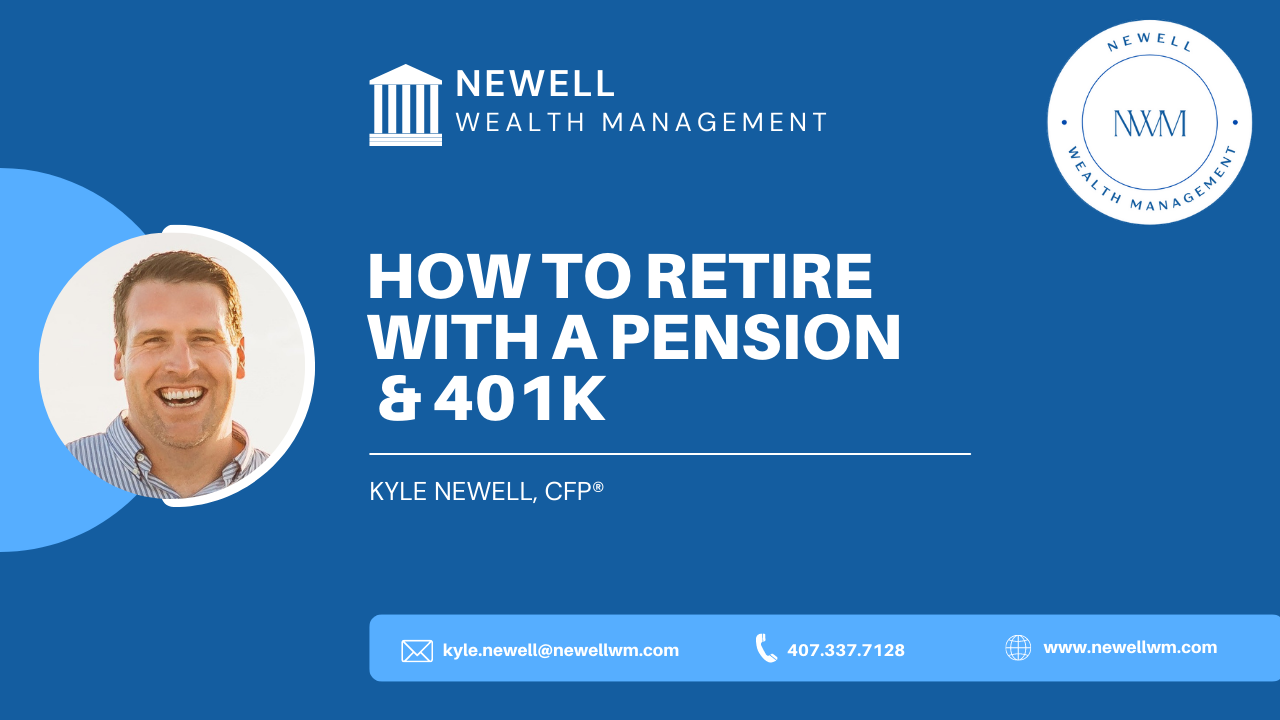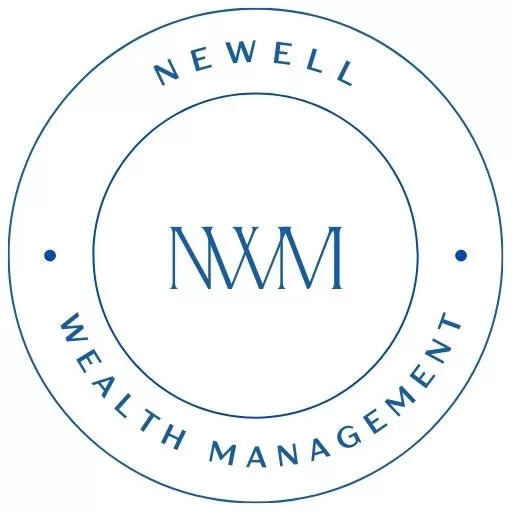How to Retire with a Pension and 401k

Retiring with a pension and 401k brings some extra complexity when considering and planning for retirement. Determining the best way to retire with a pension and 401k requires understanding those complexities. This article will provide some tips and considerations to help you create a solid retirement plan.
Historically, many companies used to offer pensions to every employee. Companies offering pensions today are few and far between. For companies that provide pensions, availability is sometimes based on when you began working with the company. Disney’s traditional pension, for example, is offered to salary workers who started with the company before 2012. Post 2012, Disney changed their pension to a cash balance plan.
A pension is a tremendous benefit because it gives you a guaranteed income stream for the rest of your life and potentially your spouse’s life if you’re married. Ideally, you have also been able to save into a 401k or IRA on top of your pension benefit.
To help you plan to retire with a pension and 401k, here are a few things to consider.

Consider the Timing
When you retire with a pension and 401k, the timing of when you take your income matters significantly, especially when it comes to your pension.
Pension
Typically pensions involve some modeling. Those models and how the company invests its money on your behalf bake into the monthly income you will receive. The earlier you draw, the less benefit you typically will have.
If you want to claim your pension earlier than 65, you will need to think about the possible reduced benefit ramifications. The Disney pension, for example, has a maximum benefit-claiming age of 65. If you continue to work past age 65, they will keep adding to the benefit. Initially, there may be only a few hundred dollars or $1,000 monthly difference between claiming at age 64 or 65.
That doesn’t seem too bad, right? Maybe not, depending on your financial situation. The more considerable risk is with the longevity of your pension.
401k
If you have a traditional 401k, you’ll be required to start taking withdrawals out at your required minimum distribution age. Congress has passed the Secure Act 2.0. Most people now have a required minimum distribution age of 73. For a few, there’s a transition period where it’s 72. Depending on your birth year, it is primarily aged 73 to 75.
Depending on when you started your pension, you may want to use your 401k before or after. You may also want to realize some taxes to minimize your overall tax burden for your entire situation.
The timing of taking retirement income is pivotal. It can affect your benefit amounts, taxes, and income longevity. This last one is key because of an essential, yet often overlooked, piece of the retirement planning puzzle.
Inflation
You already learned that you might have a reduced benefit if you claim a pension early.
Did you know that some pensions do not adjust for inflation?
A reduced benefit that does not adjust for inflation means your pension income never increases. The cost of things rises, but your pension income stays the same. Not planning for inflation can lead to a financial deficit that could put your retirement plans at risk.
Disney pensions are an example of a pension that does not adjust. While you may receive a nice payment in the beginning, 20 years later, in your late 70s or 80s, your benefit loses value because inflation continues to occur, but your benefit remains the same.
Being careful of how you use your 401k can potentially offset some additional costs as inflation starts to seep in. You may not notice it initially, but you will begin to feel the effects of inflation after 10, 15, or 20 years of retirement.
Not every pension is created the same. Some adjust for inflation. Some do not. Those that do may have specific measures in place. Others follow the government’s inflation percentage. Some may have a set inflation benefit called a “cost of living adjustment.”
Understanding how inflation impacts your pension is a big part of your overall planning. This will help guide you on how you should use your 401k to generate income or to save and invest for down the road in retirement.
Survivor Benefits
When claiming a pension, it’s good to know the survivor benefits. For instance, the Disney pension has several benefits options for your survivor.
One benefit is 100% to your survivor. If your benefit is $2,000 monthly and you pass away, your spouse will receive $2,000 monthly. There are also 75% and 50%. Having a 50% benefit would mean you receive $2,000 a month. Upon your passing, your survivor receives $1,000 per month.
When making your pension selection make sure you understand
- How much of your benefit will go to your survivor
- How does that impact future plans
- Are there additional impacts if you pass away early
Certain Life Period
Disney pensions offer another option known as the “certain life period.” It means it’s a 10-year period, certain life. If you pass away in year 7 of the ten years, the benefit will continue to your beneficiary for the remaining three years. If you have that same certain life period but pass away at year 12. There will be no survivor benefits.
Like Disney, The Florida Retirement System offers four survivor benefit options. The most common survivor benefit options are
- 100%
- 75%
- 50%
- Certain Life Period
Be sure you consider how your pension plan impacts you now, getting closer to retirement, and survivor impact upon your passing.
Taxes
Retirement taxes don’t have to be confusing. Remember that Uncle Sam will want his portion and factor that into your planning. Pensions, for the most part, are taxed as ordinary income. When you start claiming your pension, the income will be taxed at your ordinary income rates.
Example
Let’s say your pension is $2,000 a month or $24,000 for the year. If you have no other income for that year, your taxable income is $24,000. You would then reduce that by your standard deduction, whether single, married, or married filing joint. If you have other deductions greater than the standard deduction, it will also offset your income.
Most of the time, pensions are only one of your sources of income. You may also have 401k withdrawals. Withdrawals from a traditional 401k are taxable as well. For easy math, let’s say you have your $24,000 pension income and also took $24,000 in 401k withdrawals. Added together, your total taxable income is $48,000.
Be cognizant of the tax ramifications of your pension with your 401k. Often, people see they will receive $2,000 per month but forget that taxes will be required. Based on their tax bracket, they plan for $2,000 of income but end up with only $1,600 to $1,800.
Insurance
The list of things to consider could grow long. For today let’s focus on one final piece – insurance. It’s essential to look at the impact on insurance, both health insurance before the Medicare age and Medicare premiums after.
Many people don’t consider how a pension and 401k might impact insurance. In fact, some people don’t factor insurance into retirement planning at all, but it’s crucial. If you retire before age 65, how will you be covered?
Cobra
Retiring often means you are no longer covered under your employer’s healthcare plan. There is an option to enroll in Cobra insurance. This option allows you to continue on your former employer’s insurance but at a much higher cost. Retirees who are not yet Medicare eligible often find Cobra coverage cost-prohibitive.
Affordable Care Act
Often referred to as “Obama Care,” the Affordable Care Act is an exchange system for insurance. Depending on your income level, you may qualify for some tax credits against your premium if you use those exchanges.
An example would be a premium that’s $1,000, but based on your income, you get tax credits that bring it down to $200 a month. This is why understanding how to retire with a pension and 401k combined for retirement income is so important. It may impact your ability to get tax credits for affordable insurance place before age 65.
Medicare
Age 65 is the current age to qualify for Medicare. Medicare has what is called “IRMA.”
I – Income
R – Respective to
M – Modified
A – Adjusted Gross
“IRMA” looks at your income. If you have too much taxable retirement income, it will make your Medicare premiums increase, sometimes substantially. This goes back to appropriately timing your pension income and 401k withdrawals to minimize the possible impact on your insurance premiums before or after.
Tips to Remember
Retirement planning is a whole new ballgame. To retire with a pension and 401k, you want to be sure you understand how they work.
- Consider the short and long-term ramifications of each
- Try to save as much money on taxes as you can
- Make sure your money will last as long as you need it to
There is a lot of information out there; sometimes, it’s overwhelming, tedious, or makes your eyes roll back in your head. You know proper financial planning is important. You also know the consequences can sometimes be dire if you get it wrong.
As an experienced financial planner, I’m here to help. Together, we will sort through it all and create a financial plan you feel good about.
We can meet virtually or in person if you live in the Central Florida area. Please email me at kyle.newell@newellwm.com, call/text at 407.337.7128, or schedule a meeting at Schedule – Newell Wealth Management (newellwm.com)
Important Information
Newell Wealth Management, LLC (“NWM”) is a registered investment advisor offering advisory services in the State of FL and in other jurisdictions where exempted. Registration does not imply a certain level of skill or training. The presence of this website on the Internet shall not be directly or indirectly interpreted as a solicitation of investment advisory services to persons of another jurisdiction unless otherwise permitted by statute. Follow-up or individualized responses to consumers in a particular state by NWM in the rendering of personalized investment advice for compensation shall not be made without our first complying with jurisdiction requirements or pursuant an applicable state exemption.
All written content on this site is for information purposes only and is not intended to provide specific advice or recommendations for any individual. Opinions expressed herein are solely those of NWM, unless otherwise specifically cited. Kyle Newell and NWM are neither an attorney nor an accountant, and no portion of this website content should be interpreted as legal, accounting, or tax advice. Material presented is believed to be from reliable sources and no representations are made by our firm as to other parties’ informational accuracy or completeness. There is no assurance that the views or strategies discussed are suitable for all investors or will yield positive outcomes. Investment involves risks including possible loss of principal and unless otherwise stated, are not guaranteed. Any economic forecasts set forth may not develop as predicted and are subject to change. All information or ideas provided should be discussed in detail with an advisor, accountant, or legal counsel prior to implementation.
